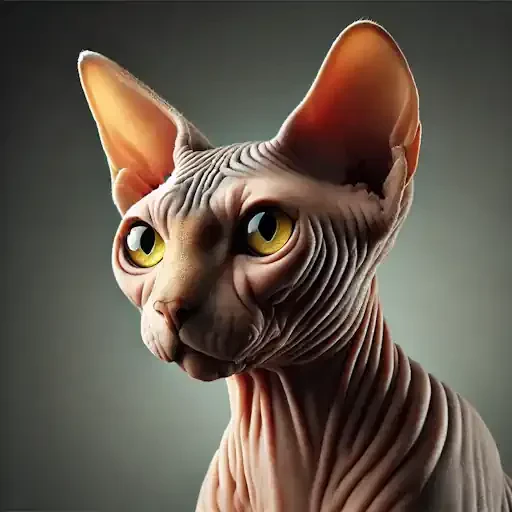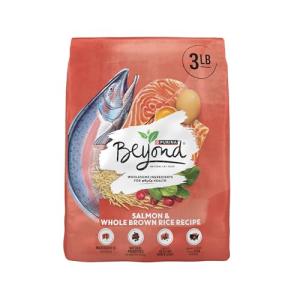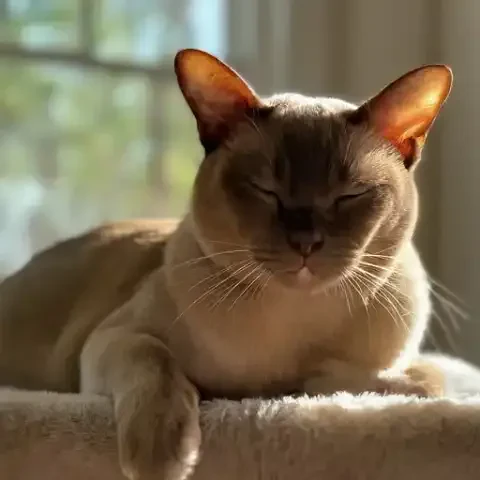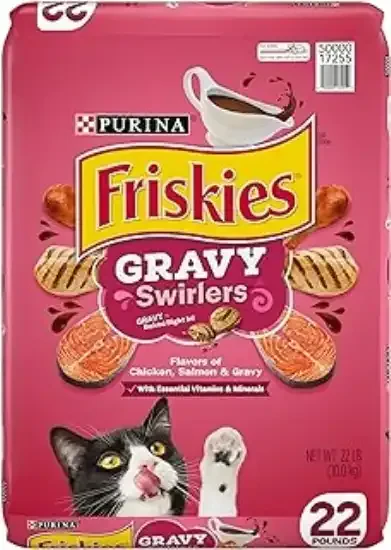Prepare to be mesmerized by the feline world's most unconventional beauty – the Sphynx cat! This breed, often described as both alien and utterly captivating, defies typical feline aesthetics with its striking hairless appearance and yet, it possesses a personality that is undeniably warm and endearing. Forget the traditional image of a fluffy feline; the Sphynx commands attention with its sculpted features, wrinkled skin, and unwavering gaze from large, expressive eyes. But beneath this unique exterior lies a heart of pure affection. Sphynx cats are not just visually arresting; they are renowned for their incredibly social and loving nature, forging deep bonds with their human companions. This article is your comprehensive guide to understanding these enigmatic felines, a journey into their fascinating origins, distinctive traits, specific care needs, and ultimately, the profound joy of sharing your life with a Sphynx. We will delve into every aspect that makes the Sphynx so special, dispelling myths and misconceptions, and illuminating the true essence of this truly remarkable and lovable breed.
To truly appreciate the Sphynx, one must understand that their hairless appearance is not some ancient Egyptian mystery, despite their name occasionally evoking images of pharaohs and pyramids. In fact, the Sphynx breed is a relatively modern creation, originating not in the sands of Egypt but in the colder climes of Canada in the 1960s. The story begins with a domestic shorthair cat named Elizabeth, who, in 1966, gave birth to a kitten with a spontaneous genetic mutation that resulted in hairlessness. This kitten, named Prune, became the foundation for the Sphynx breed. While Prune wasn’t the very first hairless cat ever recorded, she is considered the matriarch of the modern Sphynx lineage. Early attempts to establish the breed faced challenges, and the initial gene pool was quite limited. However, through careful selective breeding, including crosses with Devon Rex cats and American Shorthairs to improve genetic diversity and health, dedicated breeders worked to solidify the Sphynx traits we recognize today. This process involved selecting for not only hairlessness but also specific physical characteristics and temperament. Early breeders played a crucial role in refining the breed standard and advocating for recognition by cat registries. Despite initial skepticism and some remaining misconceptions about their health and care, the Sphynx has steadily gained popularity and acceptance. Today, the Sphynx is recognized by all major cat registries, a testament to the dedication of breeders and the undeniable allure of this unique and captivating breed.
But to simply call a Sphynx "hairless" is to oversimplify their fascinating physical reality. They are not truly devoid of hair; rather, their bodies are covered in a fine, downy fuzz, often compared to the texture of suede or chamois leather. Running your hand over a Sphynx is a surprisingly tactile experience – their skin is soft, warm to the touch, and offers a unique velvety feel quite unlike any furred cat. The degree of "hairlessness" can vary even within the breed; some Sphynx might have a slightly thicker coat of peach fuzz than others, and some may even have small tufts of hair on their nose, toes, or tail tip. Interestingly, they are often missing or possess only very short and sparse whiskers and eyelashes, further contributing to their distinctive appearance. One of the most immediately noticeable features of the Sphynx is their wonderfully wrinkled skin. These wrinkles are most prominent around their face, ears, and shoulders, adding to their expressive and somewhat melancholic appearance. The reason for these charming wrinkles? Sphynx cats have more skin than body mass, a trait accentuated by their lack of fur, allowing their skin to fold and crease beautifully. Their skin is not only wrinkled but also remarkably warm to the touch. Fur acts as insulation, and without it, the Sphynx radiates more body heat, making them feel pleasantly warm when you cuddle them close – a trait that often endears them to their human companions, who appreciate having a living hot water bottle on their lap.
Beyond their lack of fur, Sphynx cats possess a distinctive body shape and build. They are generally considered medium-sized to large cats, with a surprisingly muscular and sturdy physique beneath their delicate-looking skin. Don't be fooled by their seemingly fragile appearance; Sphynx are often surprisingly heavy for their size, possessing a solid build that belies their elegant lines. Their head is wedge-shaped with high, prominent cheekbones that further accentuate their large, expressive eyes. They have long, slender legs and a long, fine-boned tail, yet they are agile and surprisingly strong, capable of impressive leaps and playful acrobatics. Certain distinctive features further contribute to the Sphynx’s instantly recognizable look. Their eyes are large and lemon-shaped, often described as striking and expressive. Eye color can vary, ranging from vibrant greens and golds to hazel and even captivating blues, often contrasting beautifully with their skin tone. Perhaps most strikingly, their ears are oversized and wide-set, often described as bat-like in their appearance. These large ears are not only visually arresting but also incredibly mobile and expressive, contributing to their overall alert and intelligent demeanor. Coupled with their prominent whisker pads and high cheekbones, these features create a truly unforgettable and uniquely beautiful feline visage.
However, the striking physicality of the Sphynx is only half the story; it is their temperament that truly cements their reputation as exceptional companions. The Sphynx personality is as captivating and distinctive as their appearance, characterized by a deep affection, sociability, and an almost unwavering desire for human interaction. At the very core of the Sphynx temperament is their intense desire for closeness, a trait that has earned them the affectionate nickname "Velcro Cats." This moniker is no exaggeration. Sphynx cats are notorious for their need for physical contact and proximity to their human families. They are constantly seeking warmth and body heat, often found snuggled under blankets, perched on shoulders, or nestled in laps for hours on end. They will follow their owners from room to room, wanting to be involved in every activity, from cooking dinner to working on the computer. This isn't just simple curiosity; it’s a genuine desire to be near their people, to be part of the household's daily life. Sphynx cats deeply bond with their families, forming incredibly strong attachments. They are demonstrably affectionate, showering their loved ones with cuddles, purrs, and head boops. They absolutely love being held and are known for being wonderful lap cats, content to spend hours nestled close, soaking up affection. They thrive on attention and interaction, becoming truly unhappy if left alone for extended periods. Sphynx cats are decidedly not independent felines; they are social creatures who need and crave companionship, making them ideally suited for owners who are home often and can provide them with the attention they so eagerly seek.
Adding to their captivating personalities, Sphynx cats often exhibit "dog-like" behaviors, further blurring the lines between feline and canine companionship. Much like loyal dogs, Sphynx cats are known to greet their owners enthusiastically at the door, often with vocalizations and excited tail wags – a greeting far removed from the aloofness sometimes associated with cats. They are also notorious for following their owners around the house, acting as constant, furry shadows, always wanting to be in the same room and involved in whatever their human is doing. Interestingly, Sphynx cats are surprisingly trainable and intelligent. They can learn tricks, often responding well to positive reinforcement techniques like clicker training and treats. They enjoy interactive play and can even be trained to play fetch, further emphasizing their "dog-like" tendencies. This combination of loyalty, trainability, and playful engagement solidifies their reputation as devoted and interactive companions. Their intelligence and curiosity are also hallmarks of the Sphynx personality. They are highly intelligent cats who need mental stimulation to prevent boredom and mischief. They are naturally curious and love to explore their environment, often investigating every nook and cranny of the house. Providing puzzle toys, interactive feeders, and opportunities for exploration is crucial to keep their sharp minds engaged and prevent them from seeking out less desirable forms of entertainment. Sphynx cats enjoy learning new things and can be quite receptive to training, further showcasing their intellectual capabilities. Adding another layer to their communicative nature, Sphynx cats are known to be rather vocal. They are not silent felines; in fact, they are quite communicative, using a range of meows, chirps, and purrs to express themselves. They are often described as a "talkative" breed, engaging in vocal conversations with their owners, letting you know their needs, desires, and even simply their opinions on the matter at hand.
Caring for a Sphynx cat, while immensely rewarding, does come with some unique responsibilities due to their hairless nature. Skin care takes center stage in Sphynx cat maintenance. Bathing is not just occasional; it's a regular necessity for Sphynx cats. Weekly or bi-weekly baths are generally recommended to remove the natural oils that accumulate on their skin in the absence of fur to absorb them. Use gentle, cat-specific shampoos and lukewarm water to avoid irritating their sensitive skin. Thorough rinsing is crucial to remove all soap residue, and careful drying, especially within their wrinkles, is essential to prevent skin problems. Moisturizing is another key element of Sphynx skin care. After bathing, and sometimes between baths, moisturizing is essential to prevent their skin from becoming dry and flaky. Cat-safe moisturizers or oils, specifically formulated for feline skin, should be used. Apply moisturizer regularly, paying particular attention to wrinkled areas prone to dryness.
Sun protection is paramount for Sphynx cats. Their lack of fur makes them highly susceptible to sunburn. They are best suited as indoor cats to limit sun exposure. If they do spend time near windows or outdoors, ensure it's in shaded areas and during times of less intense sunlight. For limited outdoor time, cat-safe sunscreen can be applied to vulnerable areas like ears and nose, but indoor living and shade are the primary safeguards. Learn to recognize signs of sunburn in Sphynx cats, which can include redness, pain, and skin sensitivity. Temperature sensitivity is another significant consideration. Without a fur coat, Sphynx cats get cold easily. Provide them with warm environments, especially during colder months. Sweaters and cat-safe clothing can be helpful, and ensure plenty of warm blankets and cozy beds are available. Avoid exposing them to extreme cold temperatures, as they can quickly become chilled.
Grooming extends beyond just bathing for Sphynx cats. Ear cleaning is a more frequent task compared to furred cats. Sphynx tend to produce more ear wax, and without fur in their ears to naturally trap some of it, buildup is more common. Regular ear cleaning, ideally weekly, is necessary to prevent ear infections and discomfort. Use safe, veterinarian-approved ear cleaning solutions and gentle cleaning techniques. Nail trimming remains a standard grooming practice for Sphynx cats, just as it is for any cat breed. Regular nail trims prevent overgrowth and scratching. Dental hygiene is equally important. Sphynx cats, like many breeds, can be prone to dental issues. Regular teeth brushing, ideally daily, is highly recommended to maintain their dental health and prevent gingivitis and periodontal disease.
Feeding and nutrition require attention to their unique metabolic needs. Sphynx cats have a higher metabolism than furred cats, primarily to help them maintain their body temperature without the insulation of fur. They need more calories to stay warm and healthy. Feed them a high-quality, protein-rich cat food to meet their energy requirements. Portion control is still important, even with their higher metabolism. While they need more calories, they can still gain weight if overfed, so monitor their food intake to prevent obesity. Always ensure fresh, clean water is readily available to keep them properly hydrated. Environmental enrichment is crucial for their well-being. An indoor lifestyle is best for Sphynx cats, providing a safe, temperature-controlled environment and minimizing sun exposure risks. Provide plenty of warm and comfortable bedding, cat trees, scratching posts, and puzzle toys to stimulate their minds and bodies. Interactive playtime with owners is particularly important, satisfying their social needs and providing both physical and mental exercise. Clothing for Sphynx cats is often not just for fashion but for practicality. Sweaters and clothes can be beneficial for keeping them warm, especially in cooler climates or during colder months. Sun protective clothing can also be useful for very limited outdoor exposure. Choose safe, comfortable, and well-fitting clothing specifically designed for cats, ensuring it doesn't restrict their movement or cause overheating.
When considering whether a Sphynx is the right cat for you, honest self-reflection is crucial. The pros of Sphynx ownership are undeniable, beginning with their incredibly affectionate and loving personalities. Their "Velcro Cat" nature means you gain a devoted companion who thrives on your presence and affection. Their intelligent and engaging personalities make them entertaining and interactive pets, always ready for playtime or cuddles. Their unique and striking appearance is a constant source of fascination and admiration. For some allergy sufferers, Sphynx cats can be a better choice due to their relatively low shedding, though it's crucial to understand they are not hypoallergenic and reactions vary. Their playful and often comical nature makes them endlessly entertaining household members.
However, the cons must be considered equally carefully. Sphynx cats are undeniably high-maintenance in terms of skin care. The regular bathing, moisturizing, and ear cleaning routines require commitment and time. Their temperature sensitivity and need for indoor living can be a limiting factor for some owners, especially those in colder climates or who desire outdoor cats. They can be quite demanding of attention, needing significant interaction and potentially becoming distressed if left alone for long periods. They are predisposed to certain health issues, which will be discussed further, and it’s crucial to be aware of these potential concerns. Sphynx cats are definitely not for those seeking a low-maintenance or independent feline companion. Ultimately, lifestyle compatibility is the deciding factor. Sphynx cats are ideal for individuals or families who are home often and can dedicate time to their care and attention needs. They are well-suited for those who enjoy hands-on pet care and find grooming routines a bonding experience. Consider honestly if you can provide the specific care, attention, and environment that a Sphynx requires to thrive. They are not ideal for very busy individuals or those who are frequently away from home for extended periods.
Diving deeper into health matters, it's important to understand potential health concerns associated with the Sphynx breed. While generally considered relatively healthy, they are predisposed to certain conditions. Preventative care and regular veterinary check-ups are crucial for all cats, and especially important for Sphynx cats to monitor for breed-specific health issues. Hypertrophic Cardiomyopathy (HCM) is a heart condition that is more prevalent in some breeds, including Sphynx. HCM involves the thickening of the heart muscle, potentially affecting heart function. Screening for HCM in Sphynx cats can be done via echocardiogram, an ultrasound of the heart. Genetic testing for HCM in Sphynx is available, but it’s currently less reliable in this breed compared to others, making echocardiogram screening more crucial. Choosing breeders who screen their cats for HCM is essential to minimize the risk of this condition. Hereditary Myopathy, also known as Sphynx Myopathy, is a muscle weakness condition specific to the breed. This genetic condition is inherited, and while less prevalent than HCM, it is a serious concern. Symptoms of Myopathy can include muscle weakness, particularly noticeable in kittens. Currently, there is no cure for Sphynx Myopathy; management focuses on supportive care. Urticaria Pigmentosa, also known as Mastocytosis, is a skin condition with genetic predisposition in Sphynx cats. It manifests as raised, itchy welts on the skin. Diagnosis involves skin biopsies, and management typically focuses on symptom relief. Dental issues are another area of concern. Sphynx cats are prone to gingivitis and periodontal disease. Regular dental care, including at-home teeth brushing and professional dental cleanings, is vital for maintaining their oral health. While less breed-specific, patellar luxation, or kneecap dislocation, has also been observed in Sphynx cats and is worth being aware of. When seeking a Sphynx companion, choosing a reputable breeder who prioritizes health and genetic screening is paramount. Responsible breeders will health test their breeding cats for conditions like HCM and Myopathy and be transparent about their health testing practices.
Finding your Sphynx companion requires careful consideration of where you acquire your cat. Reputable breeders offer the benefit of knowing the kitten's lineage and health history. Responsible breeders prioritize health testing and socialization. However, kittens from reputable breeders will have a higher purchase price. Shelters and rescues offer the opportunity to adopt a Sphynx or Sphynx mix in need of a home. Adoption fees are lower, and you are giving a cat a second chance. However, shelter cats’ health history might be unknown, and purebred Sphynx cats are less common in shelters, although mixes can sometimes be found. When choosing a breeder, ask detailed questions. Inquire about health testing of parents for HCM, Myopathy, and other relevant conditions. Ask about temperament and socialization practices. Visit the cattery to assess the living environment. Inquire about breeder guarantees and support. Red flags to watch out for include breeders who don't health test, are evasive about health information, or are unwilling to show their facilities. Be wary of kittens raised in unclean environments or sold too young. Adoption offers compelling benefits. Consider adopting an adult Sphynx, as their personality is more established, and you can often assess their temperament more accurately. Search for Sphynx-specific rescues or breed-specific rescue organizations. Be open to adopting Sphynx mixes, as they can still possess the wonderful personalities and unique looks of the breed at a lower adoption fee. Cost considerations are important; factor in both the initial cost and ongoing expenses. Purchase prices from breeders are higher than adoption fees, but both involve ongoing costs for food, litter, vet care, and potential healthcare expenses, which may be mitigated by pet insurance.
Stepping beyond the basics, there's more to discover about life with a Sphynx. Sphynx kittens are undeniably adorable, and their wrinkles become even more pronounced as they grow, adding to their unique charm. Special kitten care needs include ensuring they stay warm, as kittens are even more susceptible to cold, and continuing socialization to shape their friendly personalities. The kitten stage is filled with playful mischief and boundless energy – enjoy this precious time! Addressing a common misconception: Sphynx cats are not hypoallergenic. This is a myth. Allergies are primarily triggered by cat dander, not cat hair itself. Sphynx cats produce dander just like any other cat breed. However, many allergy sufferers report tolerating Sphynx cats better. The reason is likely due to less hair meaning less dander spreading into the environment. But allergies are individual, and there's no guarantee a Sphynx will be allergy-friendly for every individual. A trial period or interaction with a Sphynx before committing is highly recommended for allergy sufferers.
Finally, Sphynx cats possess a collection of fun facts and quirks that make them even more endearing. Their love of warmth is legendary; they are often found seeking out the warmest spots in the house, basking in sunny windows, burrowing under blankets, and even trying to snuggle under the covers with their humans at night. Their vocalizations can be quite distinctive, with a range of meows, chirps, and trills that they use to communicate their needs and desires. Their playful antics and curious nature make them endlessly entertaining companions. While there are no universally famous Sphynx cats in popular culture to the extent of some dog breeds, they have gained increasing visibility on social media, with many Sphynx becoming internet sensations, showcasing their unique charm and captivating personalities to a global audience.
In conclusion, the Sphynx cat is a breed that challenges conventional notions of feline beauty, revealing an unconventional aesthetic that is both striking and endearing. Beneath their unique, hairless exterior lies an exceptionally affectionate and loving "Velcro Cat" personality, creating a bond with their human families that is profound and unwavering. However, responsible Sphynx ownership necessitates a thorough understanding of their specific care needs, particularly regarding skin care, temperature sensitivity, and potential health considerations. The joy and rewards of Sphynx companionship are immeasurable. Their engaging personalities, playful nature, and unwavering affection bring unparalleled joy and warmth to the lives of those who welcome them. If you are prepared to meet their unique needs and seek an exceptionally affectionate, intelligent, and utterly captivating feline companion, the Sphynx might be the perfect breed to enrich your life beyond measure. Take the time to research further, connect with reputable breeders or rescues, and truly consider if your home and heart are ready to embrace the extraordinary world of the Sphynx.







